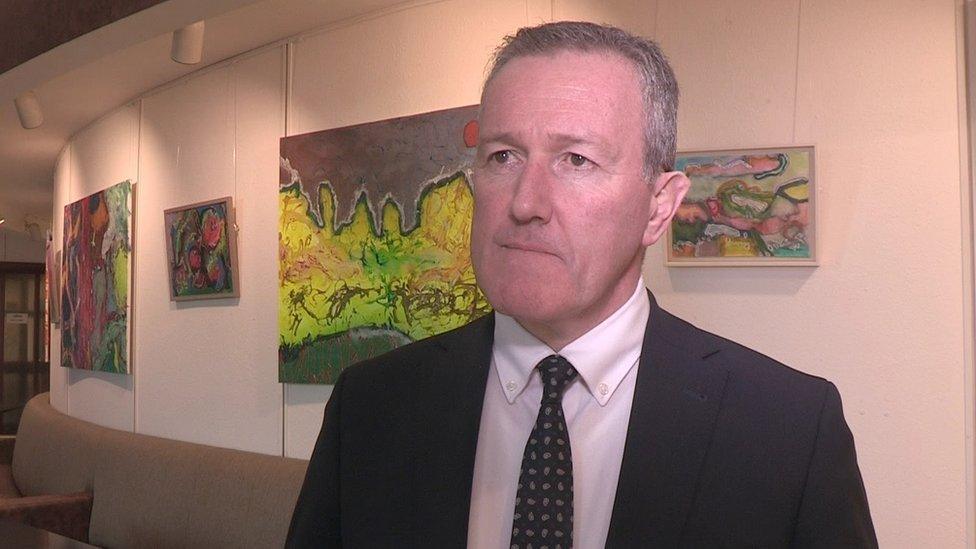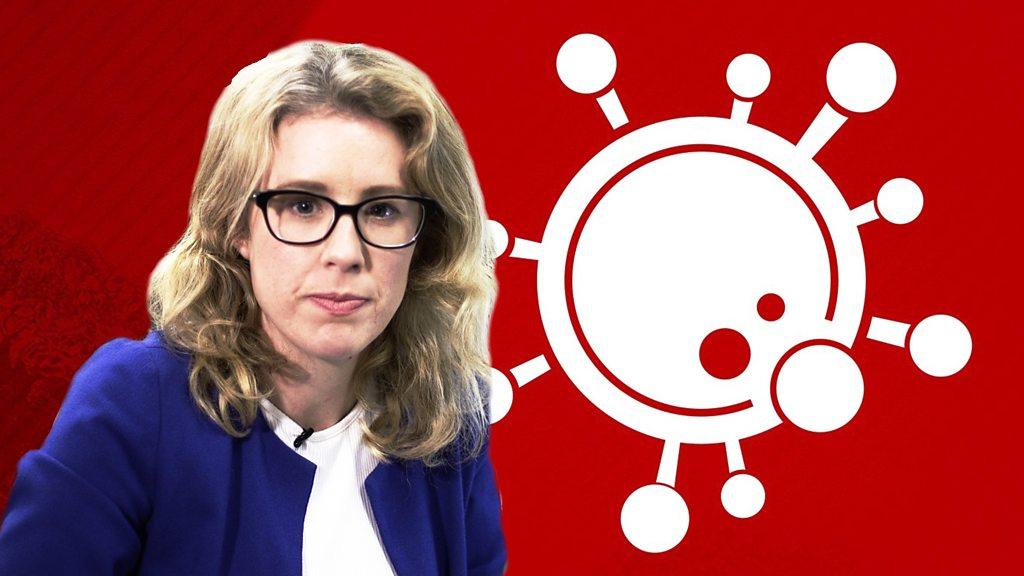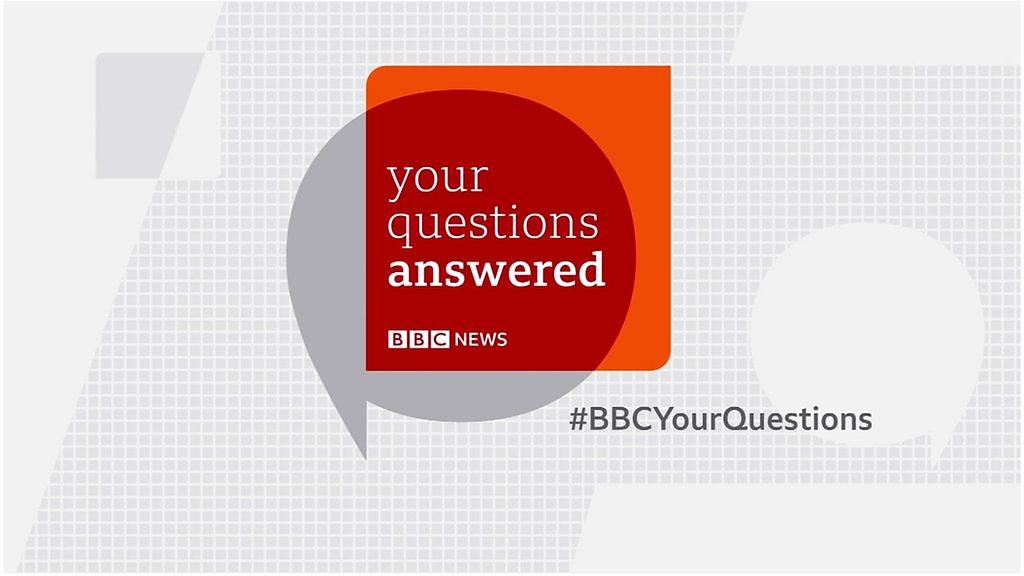Coronavirus: What Northern Ireland businesses want now
- Published
- comments

Countless small businesses are making or planning redundancies
It was on Tuesday evening that the full gravity of the economic crisis became clear in Northern Ireland.
The Beannchor hospitality group said it was temporarily laying off 800 staff.
The MJM Group in Newry, which specialises in fitting-out cruise liners, told staff that redundancies are unavoidable.
In Dungannon, County Tyrone, Mallaghan Engineering, which makes airport equipment, also warned that jobs are at risk.
And away from the headlines, countless other small businesses are making or planning redundancies.
Stormont made its first major intervention, giving all businesses a three-month rates waiver.
Rates are a property tax which is particularly significant for retail and hospitality businesses.
Finance Minister Conor Murphy said the move would amount to support worth £100m.

Finance Minister Conor Murphy has deferred the issuing of rates bills from April until June
He also deferred the issuing of rates bills from April until June to help businesses with short-term cash flow.
That was welcomed by business groups, but the short-term impact may be limited.
Roger Pollen from the Federation of Small Businesses said the way the rates calendar works most businesses are not due to pay that bill immediately.
"I had a business that called me last night. They had just laid off four staff and expect to lay off the final three at the end of the week," he said.
"A rates relief for a bill they wouldn't be paying until the end of May is really not going to help."

EASY STEPS: How to keep safe
A SIMPLE GUIDE: What are the symptoms?
CONTAINMENT: What it means to self-isolate
HEALTH MYTHS: The fake advice you should ignore
MAPS AND CHARTS: Visual guide to the outbreak
VIDEO: The 20-second hand wash

The Northern Ireland Executive made further announcements on Wednesday after receiving an additional £640m from Westminster.
Further moves on rates are likely, but what businesses want now are cash grants and help with keeping on the payroll.
The owner of the Belfast cafe chain Kaffe O, Orla Smyth, said grants rather than loans were preferable.
"I have spent six years building a business that is debt free and then to have to borrow money?" she said.
"It should be injected in the form of a grant."
In truth, much of what businesses want can only come from Westminster and not Stormont:
Deferral of the year's first quarter VAT payment which is due in April.
Deferral of employers national insurance contributions (NIC)
Deferral of self employment tax payments for self employed people which is due in July.
Anecdotally, some medium-sized businesses are already taking the decision not to pass on VAT and NIC with an attitude of "see you in court".
Colin Neill from Hospitality Ulster said the government should just move to regularise that sort of arrangement across the board.
"What we need to do now in our industry is stop the clock on all debt, all payments and when is all over restart it," he said.
- Published17 March 2020

- Published16 March 2020

- Published16 March 2020

- Published28 September 2020
